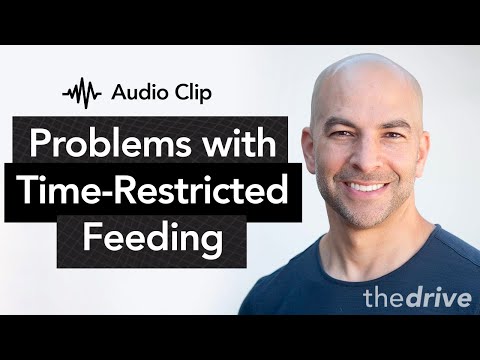It’s virtually impossible to function well on poor sleep. Sleep is the baseline and then there’s everything else that we do.
It’s even a health hazard to just have some ambient light in the room, it can throw off your circadian rhythm.
Totally agree! Some the sleep literature coming out is interesting. I listened to an audio book that put sleep above diet and exercise as far as health priority of most important. “Sleep hygiene” is gaining more steam as a thing. Cold rooms (about 65-66 degrees Fahrenheit), Dark - to decrease melatonin inhibition (even skin exposure to light can do this, not just eyes), minimal food 2-3 hours before bed, no caffeine after 12-2 in the afternoon, minimal to no alcohol, high oxygen producing plants - Mother in Laws tongue and some Ivy the release more oxygen at night. I also like a sleep story from Calm or Oura ring app. Sleep may be a good topic to start a new thread on.
Can you cite literature with metrics done at night with no light for a list of plants that release significant amounts of oxygen at night? I didn’t know that was possible. I originally thought photosynthesis was done at day but it appears to be possible to store it and release at night by closing stomata during the day.
I also wonder whether plants are even producing enough oxygen to change levels in the room.
https://www.nature.com/scitable/knowledge/library/the-ecology-of-photosynthetic-pathways-15785165/
Yep, this is the whole reason why I went to graduate school to get my PhD in sleep( specifically circadian rhythms and mental health). Sleep is the foundation for the pillars of diet and exercise.
Sure! Let me check, but it was from memory on an informal talk I gave and I was summarizing from someone else’s conclusions - so I did not see the study that they were quoting. I do believe one of the plants was an english ivy and NASA was using it on missions? @desertshores - Charles may know?
Thoughts on “circadian intermittent fasting” (10am-6pm +/- 1-2 hrs)?
That’s more of a controversial topic haha.
I think Peter Attia came out with a podcast talking about diets and saying that TRE didn’t seem to be effective in regards to timing and more so due to caloric restriction. I don’t remember the exact episode if @RapAdmin remembers and can help out in that regard.
Here’s an article he wrote a couple years ago about it:
My thoughts are if it works for an individual and that individual “Feels” better/healthier then I don’t think its bad. But need to make sure you aren’t starving yourself and taking care of all your nutritional needs( which should be for any diet).
I would make sure you eat a meal late enough that you aren’t going to be hungry in your sleep(as that disrupts your sleep cycle) and early enough where you aren’t still digesting it in your sleep(which also disrupts your sleep cycle). I think the consensus is eat your last meal/water about 3 hours before bed.
I honestly think the more important thing over diets is getting good sleep quantity and quality, then making sure you are exercising as exercising seems to be more beneficial than any specific diet for long term health. I think diet helps just accentuate what good sleep and exercise does. Although I say that we definitely shouldnt eat a bunch of junk all the time.
Hmm I think you might like this paper. Landmark IMO.
Circadian alignment of early onset caloric restriction promotes longevity in male C57BL/6J mice
Summary:
- CR with food available around the clock = +10% lifespan in mice
- CR with food available to inactive circadian cycle = ~+20% lifespan in mice
- CR with food available to active circadian cycle = ~+35% lifespan in mice
This was an eye opening study…thanks for refreshing for the community.
Great paper for those of us that believe in TRF
“Caloric restriction extended life span as expected, but it worked best when feeding was restricted so that the animals fasted for at least 12 hours and when the period in which the animals ate corresponded to the active phase of their circadian cycle”
I never had to force myself into TRF. It just evolved over time. I am never hungry before noon and that is usually when I have my first meal.
The main benefit of TRF for me is, that it is magical for me for maintaining weight stasis.
I never count calories and I eat a diet that resembles the South Beach diet.
“South Beach Diet is lower in carbs (carbohydrates) and higher in protein and healthy fats than is a typical eating plan. But it’s not a strict low-carb diet.”
Ill need to take a look at the paper, to look at the methods more in depth.
I found peter’s thoughts on it
Also Matt Kaeberlein came out with a paper on diets that may interest you
I personally have naturally gone to a TRF as I just operate better that way. Although when it comes to any diet I am always skeptical as it is very hard to control for confounding factors and biases. Like with anything else though mice data doesn’t always translate to humans.
I think circadian medicine is going to be getting bigger over the next couple decades. Here’s a cool article on it:
This is a generic population level observation he summarizes, all completely valid. It in NO way contradicts the massive and overwhelming science of fasting and CR on improved metabolic parameters and longevity.
But for THOSE that are highly knowledgeable of the science, the CRITICALITY of resistance exercise, minimum protein intake, DEXA scans and maintaining/building muscle mass as a trade for body fat with aging…it is EASY to thread the needle and have your cake and eat it. I am n=1.
For those who do NOT know what they are doing, then going head long into CR and extended fasts is a massive risk, most especially older age where the muscle dynamic signal is significantly diminished.
I agree. In my work as electrical engineering electronic designer and as a project manager, I often had Ph.D.'s working for me in areas where I had no expertise, such as advanced math.
The lab I worked for had many Ph.D.'s and a lot more with master’s degrees. I personally found that many of the masters were much smarter in the real world. I think the ones that held master’s degrees were much more interested in getting to work and really liked what they were doing. Some Ph.D.'s on the other hand were actually quite dumb in spite of their academic skills
So yes, maybe the pendulum has swung too far in questioning experts, but my belief is, “Question everything”
Agreed, and thank you ![]()
Oh yeah I read Dr. K’s paper and I’m not recommending TRF as a guarantee at all and there are confounders. From the start, I’ve noted CR diets could actually shorten lifespan in some folks. Mice are never any guarantee. Mice are nocturnal, while humans are diurnal.
I’ll also note I am testing my own combinations prospectively with several dogs (older “healthy” ones from the shelter, open label and uncontrolled of course for faster results with a lot of possible confounders, but with actigraphy, metabolic cages, non invasive PSG, home video recording, frequent lab work done cheaply and standardized feeding schedules, thanks to automation - they also get a lot of love and walks when we are home) who have plasma melatonin labs that strongly suggest they are diurnal. So far the accelerated results suggest positive results with dose dependency.
Personally for me, I think testing CR 12% with TRF 16/8 (and 1-2 hour leeway due to social reasons) with monitoring is a pretty reasonable strategy with minimal risks, assuming dose dependent fashion. I’m not expecting weight loss which appears to be the focus of the newest human trials - although I’m not trying to lose weight, my estimated visceral fat is basically zero percentile age adjusted with 11% body fat from DEXA.
Also, rapamycin + CR may work in additive fashion (in mice) btw:
Most PhD programs are not really a test of creative problem solving, lots of pressure to publish in academia. But it depends on who it is, I find the PhDs and MD/PhDs colleagues I associate with are generally pretty open minded and creative (a lot of infectious disease and vaccine trial folks from previous infectious disease research, so I can figure out all the experimental vaccine trial benefit vs risks in depth - it led to me getting N95s and the first shot of the real deal Pfizer COVID vaccine in June 2020 instead of trying peptide nasals in March 2020)
“Question everything” can be a useful heuristic, but may lack precision. Personally, I try to understand the strongest argument of the other side. If I can’t describe it well, I know I’m probably biased and don’t have a particularly strong position for my assertion.
This is off subject, somewhat, but we often forget the part of life that makes life, life and that’s PLAY ![]() I do feel the pain of this clip as pilots don’t.
I do feel the pain of this clip as pilots don’t.

